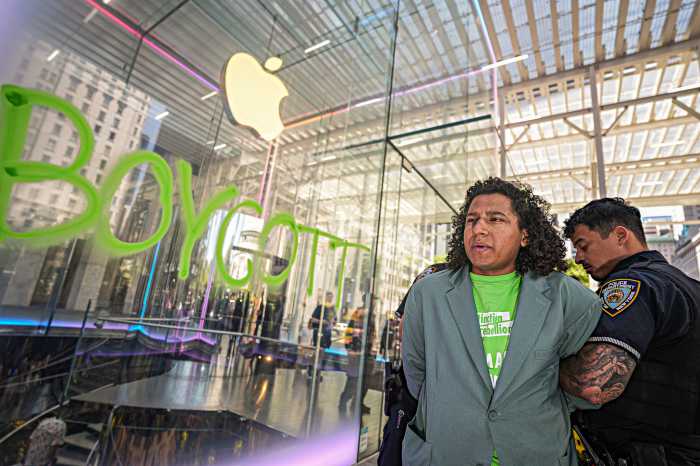When a domestic violence victim enters Queens Hospital Center (QHC), they are seen by someone trained in the area so they can learn about services available to them.
While some hospitals have domestic violence coordinators, QHC has a victim service coordinator, Jean Perry. Perry, who works in the emergency room, sees people who are victims of domestic violence, sexual assault, child abuse and elder abuse.
“When a patient comes into the emergency room and they identify themselves as a victim of domestic violence, or if, through triage, they are identified as a victim of domestic violence, I come down and talk to them,” Perry said. “That person is immediately brought to the back; they don’t have to wait because we’re sensitive to this issue, and we know that it’s very important and we want to get to the patient as soon as possible.”
Once Perry is with the patients, she begins to talk to them, including about what brought them to the hospital that day. She tries to find out if this is their first time in the hospital or if it is something that has happened before.
“For most victims that we see, it’s not the first time,” Perry said. “Just getting them to disclose is a big thing because, for the most part, they don’t readily come forth with that information. It’s a process, and we recognize that it’s a process.”
Perry explains to the individual what domestic violence is and helps him or her to recognize they are a victim. She also offers them counseling. QHC can assist victims with finding appropriate shelter and making a police report.
“They can lose their lives. This is very serious,” said Perry, who has worked at QHC for 24 years. “The City of New York takes it very seriously. We at Queens Hospital Center take it seriously and want to do all that we can to help stop the violence.”
Domestic violence victims can also go to the hospital for help in a non-emergency situation. Perry said that all the social workers at the hospital are trained to help. Along with having their social work license, Perry conducts yearly domestic violence training.
In addition to training the social workers about the issue, Perry also goes to the different departments at the hospital to talk to doctors about it.
“Domestic violence is everybody’s business so we want everybody involved,” she said. “We want everyone in the hospital to know if you see something, it goes back to say something.”
In an effort to heighten awareness, QHC holds events to teach the hospital and community about things like domestic violence. Perry said they tell people to take the information back to their community and share it with others.
Perry said that QHC, which does have language interpreters available, has seen its number of domestic violence cases triple, in part because of other hospitals in the borough closing. She also said that the country’s fiscal crisis has put more stress on people and led to incidents.
“I can also say that I think people are more responsive. People are more willing to disclose,” she said. She also said, “It was a secret, but we now know that secrets can kill.”
Victims seeking assistance can contact Queens Hospital Center’s social work office by calling 718-883-4205 or 718-883-4207.
For more on Part III of our domestic violence series:
Orders of protection and other laws
On the front lines at hospital ER
They build ‘Confidence’ in the wake of ‘Crisis’
Husband beat her – She found help






























